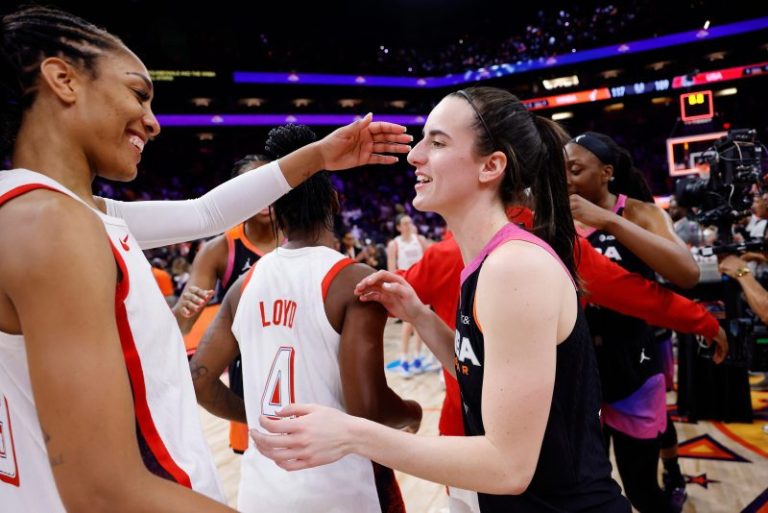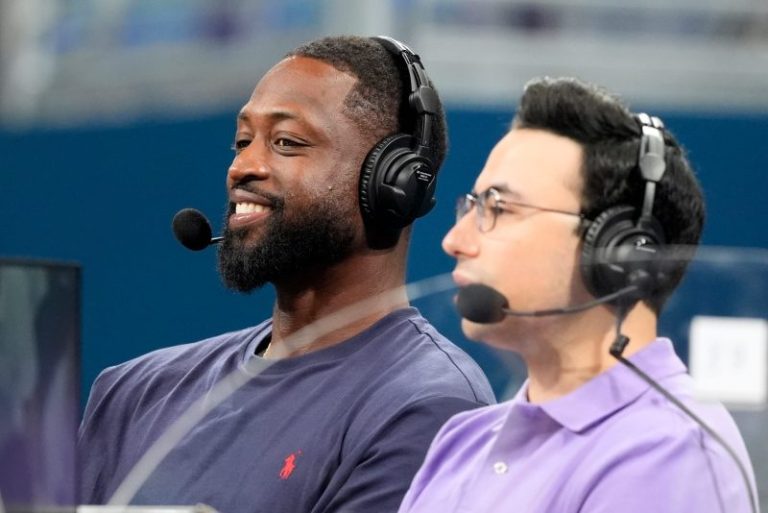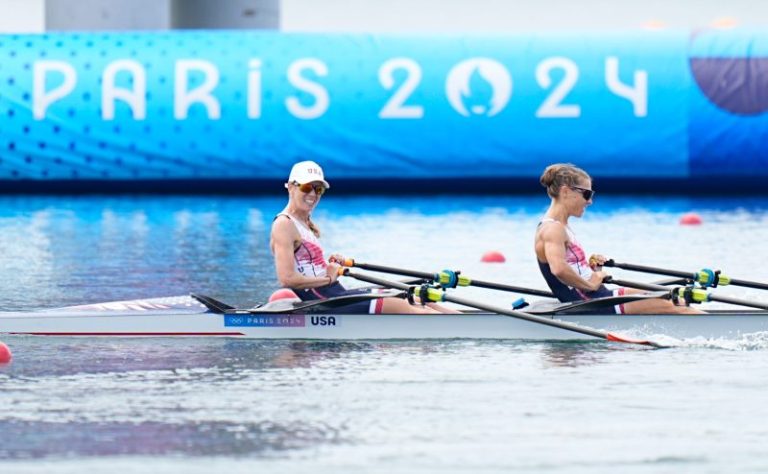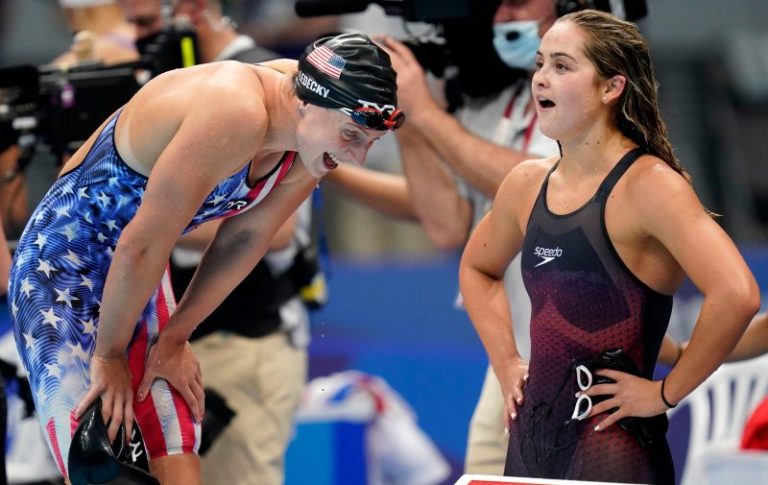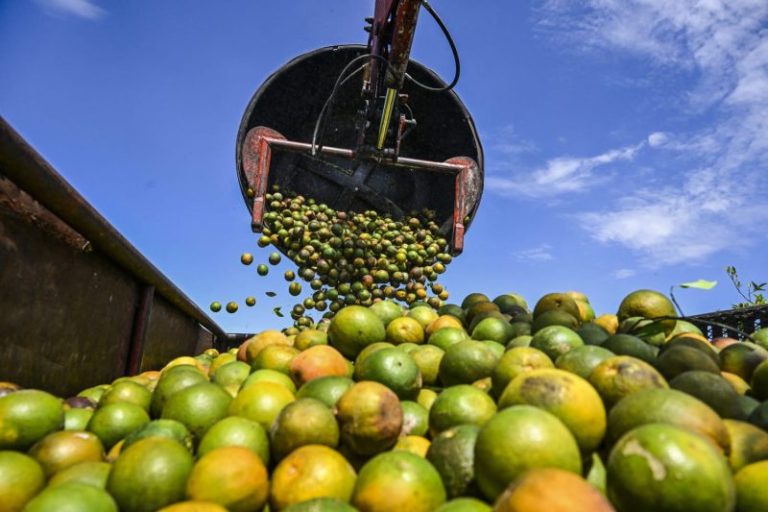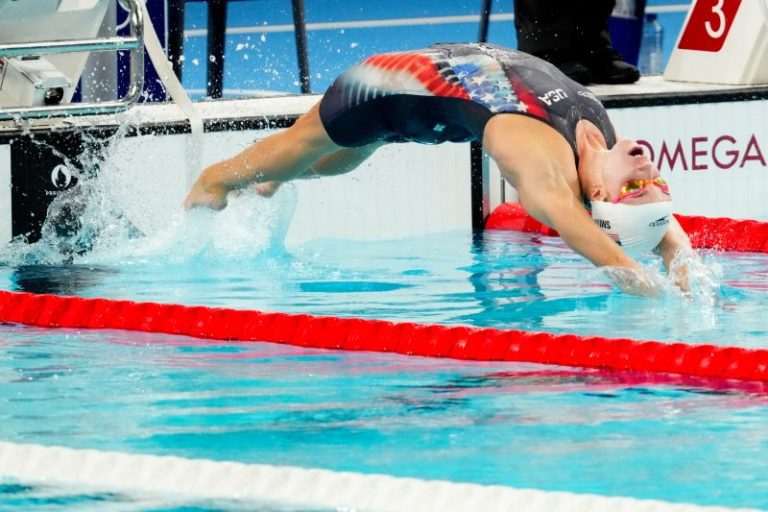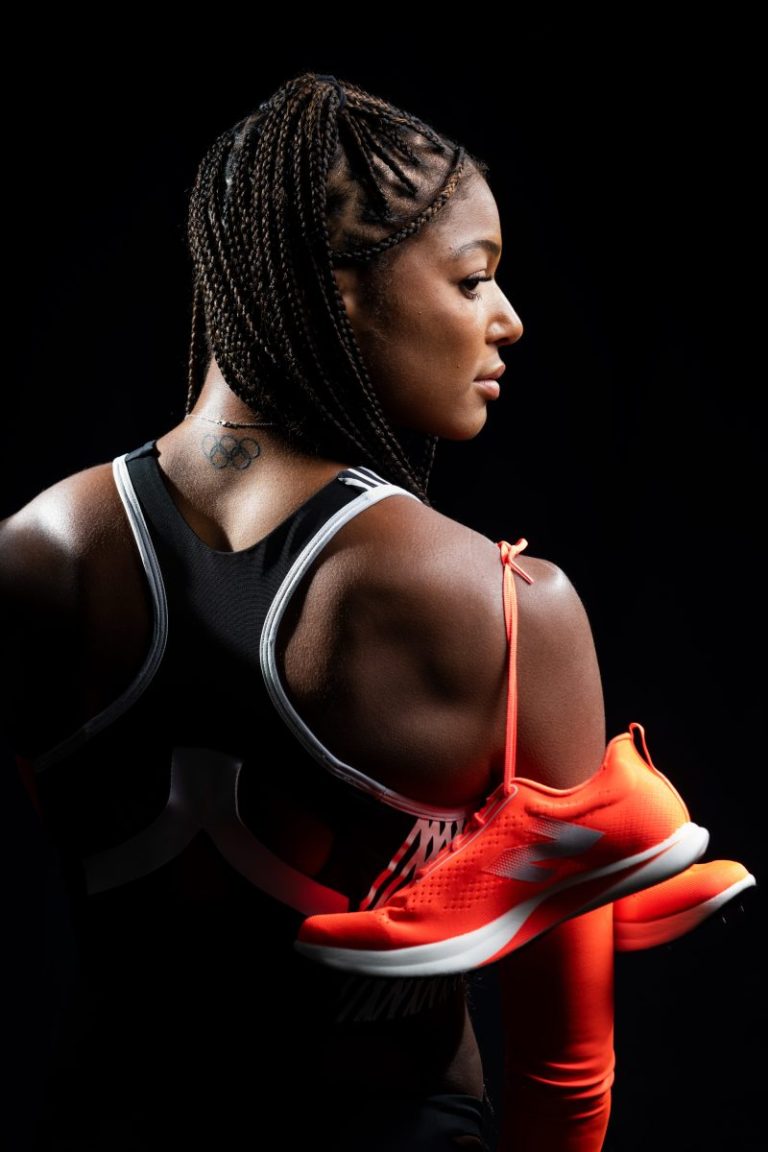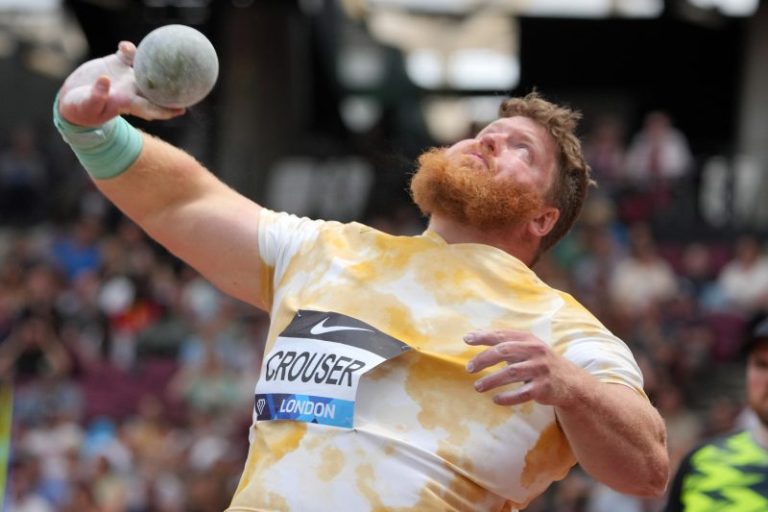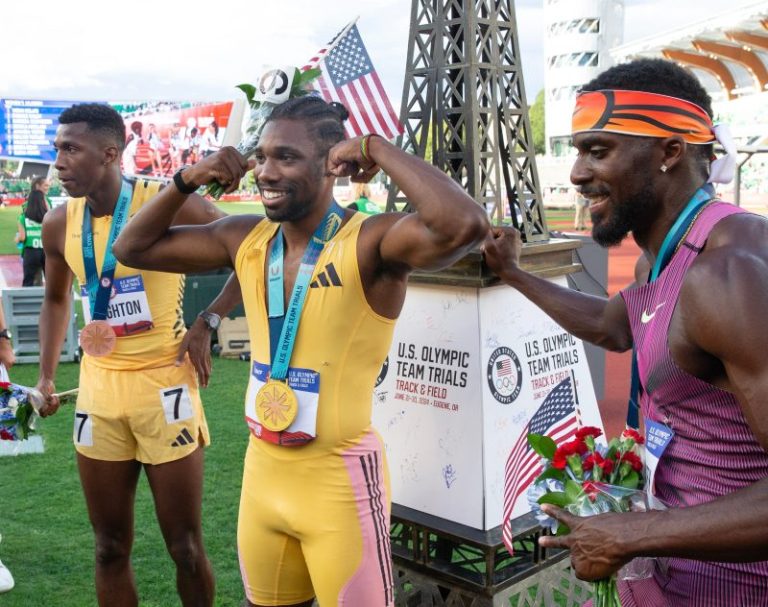PARIS — Here in the land of French fries, American sprinter Gabby Thomas has some strong opinions on the snack locally known as “frites.”
She knows it might be unconventional, but Thomas first needs to share that a sneaky good French fry distributor is Jack in the Box. Don’t knock the curly fries until you’ve tried them, she told USA TODAY Sports.
But when it comes to the classic, gotta-have-it style, Thomas said there’s no competition: It’s McDonald’s all the way.
She admits some bias: Thomas, the 200-meter specialist favored to win gold at the 2024 Olympics, used to work at McDonald’s.
That revelation about Thomas gives off a decidedly “stars, they’re just like us!” vibe. But study her résumé closer, and you’ll begin to understand why Thomas is not, in fact, like the average American. Consider:
2024 Olympic medals: Who is leading the medal count? Follow along as we track the medals for every sport.
She’s competing in her second consecutive Olympics, and is the defending bronze medalist in her event. She’s run the fastest 200 time (21.78 seconds) in the world this year.
She went to Harvard to study neurobiology.
She has her master’s degree in public health with a concentration in epidemiology, and, when not training, volunteers at an Austin, Texas, health clinic.
Imagine if she adds “gold medalist.” Talk about being unrelatable.
What is relatable? Thomas, 27, is the definition of a late bloomer. And it’s a label she wears proudly.
Get Olympics updates in your texts! Join USA TODAY Sports’ WhatsApp Channel
She wound up at Harvard, not exactly known as an athletics powerhouse, not only because her mom, Jennifer Randall, stressed the importance of academics growing up but because “in high school, I was not a standout athlete. I wasn’t recruited heavily by track schools and track programs.” The Olympics were never a goal. She wanted to be a doctor and figured Harvard was the perfect place to take the first step.
The lessons she learned at home and Harvard continue to drive her.
Gabby Thomas: ‘It’s really easy to fall in love with running’
Randall raised Thomas and her twin brother Andrew — he’s “only older by a few seconds,” Thomas stressed — as a single mom. Though Randall didn’t have “two pennies to scrub together,” as Thomas has previously said, she never used it as an excuse. She urged her children to chase their passions. While Andrew gravitated toward art and graphic design, Gabby fell hard for track.
“It’s really easy to fall in love with running,” Thomas said. “It can be painful at times, but it’s such a beautiful sport. You set goals and go after them in the purest form — and when you achieve those goals, it’s such an addicting feeling.”
It helped, she said, that her mom never pressured or forced her into sport. She only encouraged it.
Thomas got into track initially because her mom loved and admired Allyson Felix, the most decorated female U.S. track athlete of all time. Thomas grew to idolize Felix, too, a fact she better appreciates now because younger USATF athletes like McKenzie Long, who finished third at trials and joined Thomas in Paris, idolize her.
“I’ve always wanted to run like her,” Long said after that race, adding that she was a tad embarrassed because she was “fangirling so bad’ being in the lane next to Thomas, ‘but it’s just really cool to have her as a teammate.” (Also of note: At the ESPYs, Felix told USA TODAY Sports she was most excited in Paris to watch the women’s 200, her favorite event, partially because “Gabby’s been looking really good.”)
In second Olympics, Thomas is still ‘so fresh and excited about the sport’
When it was time to pick a college, Harvard felt fitting. Thomas said it was the perfect place to balance celebrating your achievements (you got into Harvard!) while staying humble (everyone else here is doing something amazing too!) A 22-time Ivy League champion, she decided to forgo her senior year of eligibility to turn pro, moving to Austin to train full-time.
She’s still quite nerdy, and happy to admit it. Most pro track athletes focus on their sport, but Thomas finds that working in public health helps her mental balance. Her clinic work — she runs a hypertension intervention program, working with patients who are hypertensive, or have high blood pressure — gives her room to “act like a normal person,” and a connection to her community.
Many of her patients have no idea that the first time they talk to her, they’re chatting with a world-class athlete. And she’s just fine with that.
Track will end some day, and she wants the transition to her next chapter to be as seamless as possible. Her end goal is to be the CEO of a hospital. She knows she’s on an unconventional path, one unlike most Olympians. She wouldn’t have it any other way.
“I do think that in a way getting a later start has been helpful because it just keeps me so fresh and excited about the sport,” said Thomas, who also owns a silver medal in the 4×100 relay. “And I know that I’m still working up to my potential and there’s still so much room for me to peak.”
Why Gabby Thomas isn’t attempting the double: 200 and 400
Many thought Thomas would try for a 200-400 double at the U.S. track and field trials in Eugene, Oregon, setting her up to win multiple individual medals in Paris. Instead, she opted to focus on the 200, though she admitted that during the 400 trials final, she felt a pang of jealousy.
“I think it’s really easy to get carried away and swept up in these medal counts, doing everything and showing the world what you can do, showing off, all of that,” she said. “Part of it was I wanted to show the world, hey I can double. It took a lot of discipline to sit down and say no, my personal goal is to get a gold medal in the 200 meter at the Paris Olympics — what can we do to get there?”
Thomas won the 200 at trials by nearly a tenth of a second (her 21.78, the fastest time in the world this season, came in the semis) and if she’d doubled, she’s not sure that extra tenth would have been there.
This summer’s trials were a stark difference from three years ago, she recalled with a laugh, when “I was here to have a good time.” Qualifying for the trials in that year, she said, was her “personal Olympics.” Everything after that, including making Team USA and winning bronze, was gravy.
But it was noticeably different this year.
“As a new athlete, you really don’t know how to handle the rounds (at trials),” Thomas said. “Every round is kind of like a final and you have to run it really hard. Having that experience really helps … this year, there were higher expectations: People were looking up to me, people were expecting me to do big things and make the team.”
And yet, she faced her own obstacle on her way to 2024 that threatened to derail her dream. A significant hamstring pull kept her out of the 2022 World Championships, an especially heartbreaking and frustrating injury because it meant she would miss out on the first World Championship meet held on U.S. soil. On the calendar, it might seem like it happened long ago. But to Thomas, it feels more recent.
“Coming back from an injury, it’s a tough thing to do for an athlete because not only are you coming back from the physical aspect and having to heal and recover, but emotionally it’s really hard to gain that confidence back … to where you’re on the (starting) line and feel like you’re in control,” Thomas said. “You have to trust yourself again, and that’s a whole process.”
When she ran her 21.78 in the trials semis, she said it surprised her because she “didn’t expect to run that fast feeling that good.” Each meet, she feels a little more in control, and a little more like herself. It bodes well for what she can do in Paris.
Thomas hopes to do more than just win gold in her speciality, though. She also wants to inspire people to chase what they want in life, even if it seems impossible because they started after everyone else. She wants to make sure they understand it’s OK to be different, and take a different journey.
“I think I’m a testament to, if you find joy and feel like you want to pursue something, you can do just that,” she said. “It doesn’t matter when you start or how you start, it just matters that you do it.”
The USA TODAY app gets you to the heart of the news — fast. Download for award-winning coverage, crosswords, audio storytelling, the eNewspaper and more.
This post appeared first on USA TODAY


